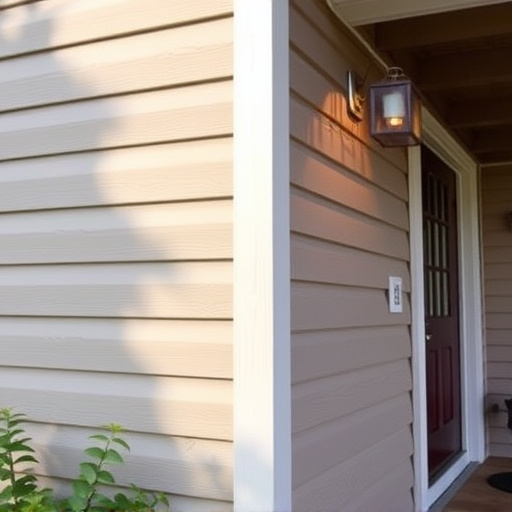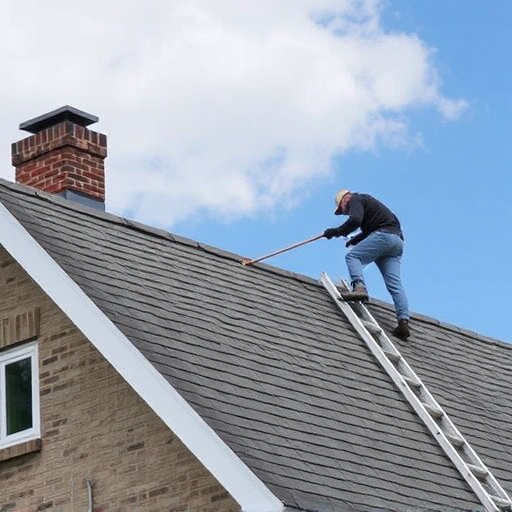Local independent roof contractors offer agility and personalized service, ideal for smaller projects. Large companies provide skilled labor, modern materials, warranties, but may lack personalization. Assess project scope, consider expertise in various roofing services, check reputation, and prioritize safety, completion time, and transparent pricing when choosing a roof contractor.
When considering a roof replacement or repair, understanding the differences between independent and large company roof contractors is crucial. While independent contractors offer specialized expertise and personalized service, larger companies boast resources and stability. This article explores these options in detail, highlighting the advantages and disadvantages of each, providing essential factors to consider when choosing a reliable roof contractor.
- Understanding Independent Roof Contractors
- Large Company Advantages and Disadvantages
- Factors to Consider When Choosing a Contractor
Understanding Independent Roof Contractors

Independent roof contractors are specialized businesses owned and operated by individuals or small teams, often with a focus on local communities. These contractors typically offer a wide range of services, including residential roofing, commercial siding, and repair works for both residential and commercial properties. Their expertise lies in providing personalized solutions tailored to each client’s unique needs. With their agility and direct communication channels, independent contractors can swiftly respond to emergencies and offer flexible scheduling for projects of all sizes.
Unlike large company roof contractors, independent businesses tend to be more agile and adaptable. They often possess a deep understanding of the local market and building codes, ensuring compliance without the bureaucracy associated with larger corporations. This hands-on approach allows them to foster strong relationships with clients, offering transparent pricing and high-quality workmanship.
Large Company Advantages and Disadvantages

Large companies offering roofing services have several advantages that can be appealing to homeowners or commercial property owners. One significant benefit is their vast resources and expertise; they often employ a wide range of skilled professionals, ensuring top-quality craftsmanship. This can lead to faster project completion times since more workers mean more efficient labor division. Additionally, large companies usually have better access to materials, which may include the latest technologies and trends in exterior home improvements, including high-end commercial siding options. Their financial stability is another advantage; they can often provide warranties on their work, giving clients peace of mind.
However, there are also disadvantages to consider. Smaller, independent contractors might offer more personalized service, but large companies have the potential to deliver consistent and standardized roofing solutions. The corporate structure may lead to a less flexible approach, with set processes that could potentially delay projects or be less adaptable to unique property needs. Furthermore, while they may offer a wide range of services, including specialized commercial roofing, some clients might prefer the more niche focus of independent contractors, who can provide tailored advice and solutions for specific exterior home improvement projects.
Factors to Consider When Choosing a Contractor

When selecting a roof contractor, there are several key factors to weigh. Firstly, consider the scope and complexity of your project. Independent contractors may excel at specialized tasks or smaller-scale jobs, while large companies often have the resources for extensive, multi-faceted projects. Additionally, look into their expertise in specific areas like roofing repair, replacement, or even siding installation and gutters.
Reputation is another vital consideration. Research their track record, customer reviews, and warranties to ensure quality craftsmanship and reliability. The decision should also factor in their ability to adhere to safety standards, on-time completion, and whether they offer transparent pricing for both roofing services and any additional work like siding installation or gutter repair.
When selecting a roof contractor, whether you prefer an independent or large company, careful consideration is key. Both options have unique advantages and potential drawbacks, and understanding these factors will help ensure you make an informed decision. By evaluating their expertise, reputation, pricing, and customer service, you can choose the best fit for your roofing needs, ensuring a durable and reliable outcome. Remember, the right contractor can transform your roof into a protective asset, so take the time to explore both options thoroughly.














